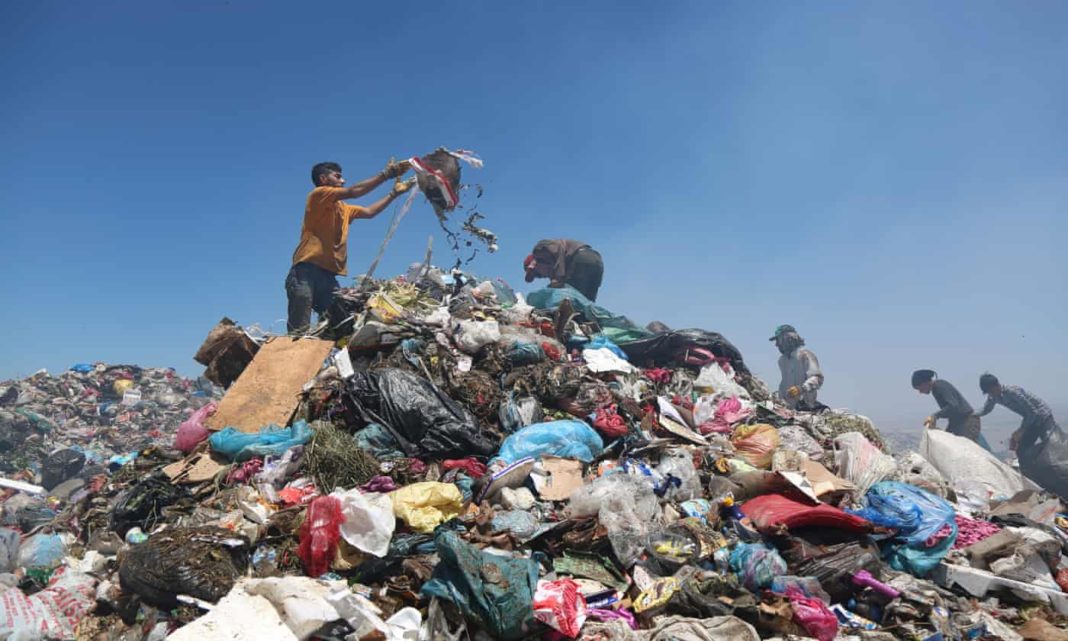« The amount of the carcinogenic substances of dioxin and furan found in the samples from dumpsites in Adana was 400,000 times higher than in uncontaminated soil, a Greenpeace Mediterranean analysis has found » says Bianet English.
Having found in April 2021 that plastic waste mostly imported from the UK and EU countries was illegally dumped and burned in the open in Adana, southern Turkey, has carried out an analysis to find out the impact of waste burning.
Samples of soil, ash, water and sediment collected from illegal plastic dump sites were analyzed by both Greenpeace Research Laboratories and independent laboratories.
Accordingly, the amount of dioxin and furan found in the samples from dumpsites was 400,000 times higher than in uncontaminated soil and that was the highest ever toxicity level found in soil in Turkey.
Dioxin-furans are carcinogenic and they may be toxic to unborn children, trigger tumors and affect hormone and immune systems, said Greenpeace.
The amount of polychlorinated biphenyls (PCBs) in the samples was 30,000 times higher than in uncontamined soil. Also, 18 different types of metals and metalloids and Polycyclic aromatic hydrocarbons (PAHs) were detected in the samples, according to the report.
The five dumpsites it analyzed are among Adana’s fertile agricultural, livestock and irrigation lands, Greenpeace noted. The heavy metals, dioxins and furan and permanent organic pollutants that are produced as a result of illegal burning of plastic waste can cause cancer by mixing into soil, water, air and food chain, it said.
« I send vitamins to Europe, they send us poison »
İzzeddin Akman, who cultivates citrus fruits in Adana, told Greenpeace that « I send vitamins to Europe, they send us poison. »
Dr. Kevin Bridgen, a scientist who took part in the analysis, said such chemical pollutants are very resilient to degradation in the environment and they can enter human and animal bodies through the food chain.
« The levels of these pollutants were very high in some of the areas where plastic wastes from Europe, especially England, were detected intensely, » he noted.
Nihan Temiz Ataş, the biodiversity project leader of Greenpeace Mediterranean, said the plastic waste imported from European countries causes « irreversible damage » to the environment in Turkey. « Exporting countries, especially England, should take responsibility and stop sending plastic to Turkey. Turkey is not a plastic dump and these harmful waste games must end. »
Turkey’s plastic waste import
Turkey’s plastic waste imports rapidly increased after early 2018, when China imposed bans on waste imports. In 2019 and 2020, Turkey was the largest importer of Europe’s plastic waste.
According to Eurostat and UK Office for National Statistics figures compiled by Greenpeace;
Turkey imported 659,960 tons of plastic waste from the EU countries and the UK in 2020, up by 13 percent from the previous year. Some 241 truckloads of plastic waste came to Turkey from those countries every day.
• In 2019, Turkey imported 582,296 tons of plastic waste from the EU countries and the UK.
• Twenty-eight percent of Europe’s plastic waste exports were to Turkey in 2020.
• Turkey’s plastic waste imports increased by 196 times between 2004 and 2020.
• In 2020, the top five countries that sent the most plastic waste to Turkey were the UK (209,642 tons), Belgium (137,071 tons), Germany (136,083 tons), the Netherlands (49,496 tons) and Slovenia (24,884 tons). (TP/VK)
Bianet English, February 10, 2022, Photo/Sertac Kayar/Reuters

